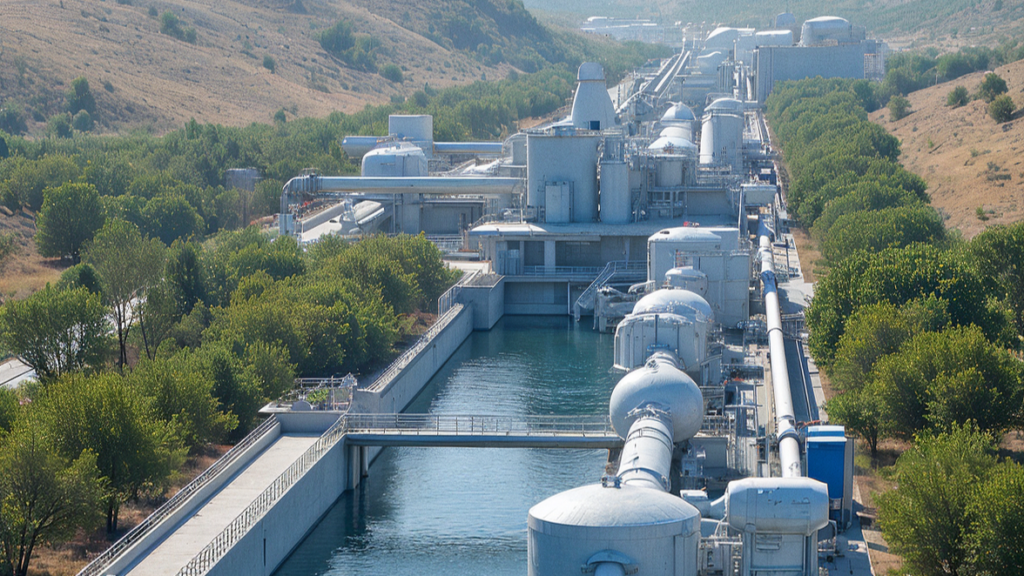TAQA Water Solutions has signed a Memorandum of Agreement (MoA) with the New Tashkent City Directorate to develop a 65km raw water transmission pipeline and a high-tech water treatment plant. This initiative is TAQA’s second major water infrastructure project in Uzbekistan. Moreover, it aligns with the country’s long-term urban sustainability goals. The project aims to provide sustainable clean water access to approximately 2 million residents in New Tashkent City. Furthermore, it will support the region’s rapid development. As part of this vision, the Tashkent City water development initiative will enhance infrastructure resilience and sustainability.
The MoA grants TAQA Water Solutions an exclusivity period to conduct technical and financial assessments. Consequently, these evaluations will help develop a bankable project proposal. The plan includes deploying advanced water treatment technologies. Additionally, it ensures financial sustainability through a public-private partnership (PPP) framework. Uzbekistan’s water demand is expected to grow by 30% by 2035. Therefore, this project is essential for long-term resource security. By leveraging expertise from Abu Dhabi’s successful water projects, TAQA aims to deliver a resilient, cost-efficient Tashkent City water development model.
The Tashkent City water development project will follow a 25-year Build-Own-Operate-Transfer (BOOT) contract. Notably, this model ensures efficiency and long-term viability. Once operational, the project will transport 550,000 cubic meters of water daily from the Charvak Mountain Reservoir. It will utilize a state-of-the-art pipeline network. Moreover, the infrastructure will incorporate a hydropower system generating 20 megawatts (MW) of electricity. As a result, this will reinforce sustainable energy solutions.
With an estimated investment of AED 2 billion ($545 million), the initiative showcases how public-private partnerships (PPPs) drive infrastructure development. These partnerships balance government oversight with private-sector efficiency. In addition, this project follows TAQA Water Solutions’ success in leading Tashkent’s largest wastewater treatment facility. It strengthens its expertise in Uzbekistan’s water sector.
The water treatment plant will feature AI-driven purification systems. These will ensure compliance with global drinking water quality standards. Moreover, new filtration and disinfection technologies will remove over 99% of harmful contaminants. This guarantees safe and reliable water access for the city’s expanding population. Consequently, this infrastructure model aims to improve water security by 40% over the next decade. It will address both immediate and future needs.
This agreement highlights the growing economic cooperation between the UAE and Uzbekistan. Furthermore, it reflects a shared vision for sustainable infrastructure development. Uzbekistan’s PPP legal framework, established in 2019, has accelerated foreign investment in key sectors. These include water and energy. Since its adoption, over $8 billion in PPP projects have been launched. As a result, this has significantly enhanced the country’s infrastructure landscape.
TAQA Water Solutions CEO Eng. Ahmed Al Shamsi emphasized the importance of strategic partnerships in advancing water security. He stated, “Building on last year’s success with Tashkent’s wastewater treatment plant, we are eager to develop a water infrastructure model that sets new benchmarks for sustainable resource management.”
New Tashkent City Directorate’s Deputy Director Maksud Abbaskhanov reaffirmed the value of this collaboration. He added, “TAQA’s experience in Abu Dhabi’s advanced water infrastructure makes them the ideal partner to ensure a resilient, state-of-the-art solution for our city.”
Uzbekistan’s focus on PPP-driven infrastructure has positioned the country as a key player in Central Asia’s urban development strategy. The World Bank ranks Uzbekistan among the top emerging markets for PPP investments. Over 30 water and energy projects are currently underway under this model. Furthermore, the Tashkent City water development project represents a scalable approach to water security. It integrates private-sector efficiency, technological innovation, and government oversight.
With completion expected by 2035, this project will set a precedent for future large-scale water PPP initiatives. It demonstrates how sustainable financing models support economic expansion while securing essential resources. Moreover, the combination of foreign investment, advanced technology, and structured governance ensures the long-term viability of Tashkent City’s water development.
Soruce:




